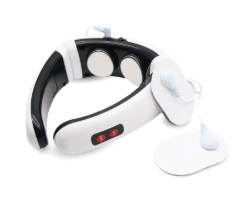DUBLIN, Dec. 17, 2020 /PRNewswire/ -- The "Gene Therapy Global Market Report 2020-30: COVID-19 Growth and Change" report has been added to ResearchAndMarkets.com's offering.
Gene Therapy Global Market Report 2020-30: COVID-19 Growth and Change provides the strategists, marketers and senior management with the critical information they need to assess the global gene therapy market market.
Major players in the gene therapy market are Novartis AG, Bluebird Bio, Inc., Spark Therapeutics, Inc., Audentes Therapeutics, Voyager Therapeutics, Applied Genetic Technologies Corporation, UniQure N.V., Celgene Corporation, Cellectis S.A. and Sangamo Therapeutics.
The global gene therapy market is expected to decline from $3.22 billion in 2019 to $3.18 billion in 2020 at a compound annual growth rate (CAGR) of -1.30%. The decline is mainly due to the COVID-19 outbreak that has led to restrictive containment measures involving social distancing, remote working, and the closure of industries and other commercial activities resulting in operational challenges. The market is then expected to recover and reach $6.84 billion in 2023 at a CAGR of 29.09%.
The gene therapy market consists of sales of gene therapy related services by entities (organizations, sole traders and partnerships) that manufacture gene therapy drugs. Gene therapy is used to replace faulty genes or add new genes to cure disease or improve the body's ability to fight disease. Only goods and services traded between entities or sold to end consumers are included.
North America was the largest region in the gene therapy market in 2019.
The gene therapy market covered in this report is segmented by gene type into antigen; cytokine; suicide gene; others. It is also segmented by vector into viral vector; non-viral vector; others, by application into oncological disorders; rare diseases; cardiovascular diseases; neurological disorders; infectious diseases; others, and by end users into hospitals; homecare; specialty clinics; others.
In December 2019, Roche, a Switzerland-based company, completed its acquisition of Spark Therapeutics for $4.3 billion. With this deal, Roche is expected to strengthen its presence in the gene therapy segment, support transformational therapies and increase its product portfolio. Spark Therapeutics is a US-based company involved in gene therapy.
The high prices of gene therapy medicines are expected to limit the growth of the gene therapy market. The pressure to contain costs and demonstrate value is widespread. Political uncertainty and persistent economic stress in numerous countries are calling into question the sustainability of public health care funding. In less wealthy countries, the lack of cost-effective therapies for cancer and other diseases has influenced the health conditions of the population and has led to a low average life expectancy.
Luxturna, a one-time treatment for acquired retinal eye disease, costs $850,000 in the US and 613,410 in the UK, despite a markdown that is applied through Britain's National Health Service. Zolgensma, for spinal muscular atrophy, is valued at $2.1 million in the US and Zynteglo, which focuses on a rare genetic blood disorder, costs $1.78 million, thus restraining the growth of the market.
The use of machine learning and artificial intelligence is gradually gaining popularity in the gene therapy market. Artificial intelligence (AI) is the simulation of human intelligence in machines, which are programmed to display their natural intelligence. Machine learning is a part of AI.
Machine learning and AI help companies in the gene therapy market to conduct a detailed analysis of all relevant data, provide insights between tumor and immune cell interactions, and offer a more accurate evaluation of tissue samples often conflicted between different evaluators. For instance, since January 2020, GlaxoSmithKline, a pharmaceutical company, has been investing in AI to optimize gene therapy and develop off-the-shelf solutions for patients. It is also expected to reduce turnaround time and also the cost of gene therapies.
Key Topics Covered:
1. Executive Summary
2. Gene Therapy Market Characteristics
3. Gene Therapy Market Size And Growth 3.1. Global Gene Therapy Historic Market, 2015 - 2019, $ Billion 3.1.1. Drivers Of The Market 3.1.2. Restraints On The Market 3.2. Global Gene Therapy Forecast Market, 2019 - 2023F, 2025F, 2030F, $ Billion 3.2.1. Drivers Of The Market 3.2.2. Restraints On the Market
4. Gene Therapy Market Segmentation 4.1. Global Gene Therapy Market, Segmentation By Gene Type, Historic and Forecast, 2015-2019, 2023F, 2025F, 2030F, $ Billion
4.2. Global Gene Therapy Market, Segmentation By Vector, Historic and Forecast, 2015-2019, 2023F, 2025F, 2030F, $ Billion
4.3. Global Gene Therapy Market, Segmentation By Application, Historic and Forecast, 2015-2019, 2023F, 2025F, 2030F, $ Billion
4.4. Global Gene Therapy Market, Segmentation By End Users, Historic and Forecast, 2015-2019, 2023F, 2025F, 2030F, $ Billion
5. Gene Therapy Market Regional And Country Analysis 5.1. Global Gene Therapy Market, Split By Region, Historic and Forecast, 2015-2019, 2023F, 2025F, 2030F, $ Billion 5.2. Global Gene Therapy Market, Split By Country, Historic and Forecast, 2015-2019, 2023F, 2025F, 2030F, $ Billion
Companies Mentioned
For more information about this report visit https://www.researchandmarkets.com/r/fltbmv
Research and Markets also offers Custom Research services providing focused, comprehensive and tailored research.
Media Contact:
Research and Markets Laura Wood, Senior Manager [emailprotected]
For E.S.T Office Hours Call +1-917-300-0470 For U.S./CAN Toll Free Call +1-800-526-8630 For GMT Office Hours Call +353-1-416-8900
U.S. Fax: 646-607-1907 Fax (outside U.S.): +353-1-481-1716
SOURCE Research and Markets
http://www.researchandmarkets.com
Read more from the original source:
Global Gene Therapy Market Report 2020-2030 Featuring Novartis, Bluebird Bio, Spark Therapeutics, Audentes Therapeutics, Voyager Therapeutics,...

